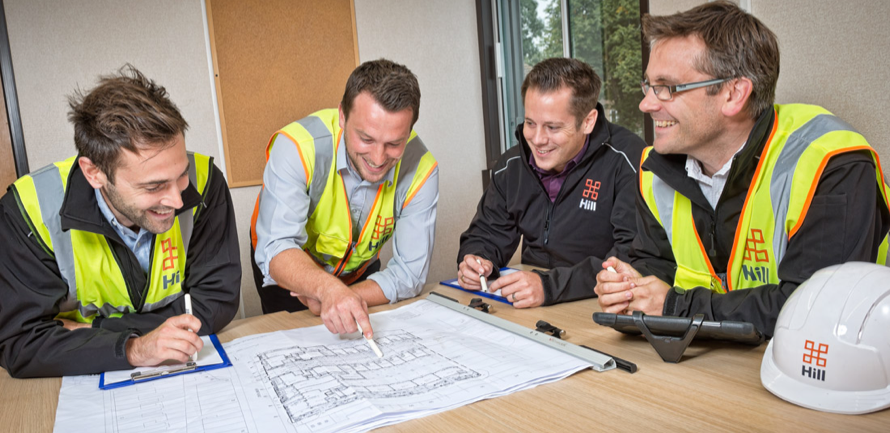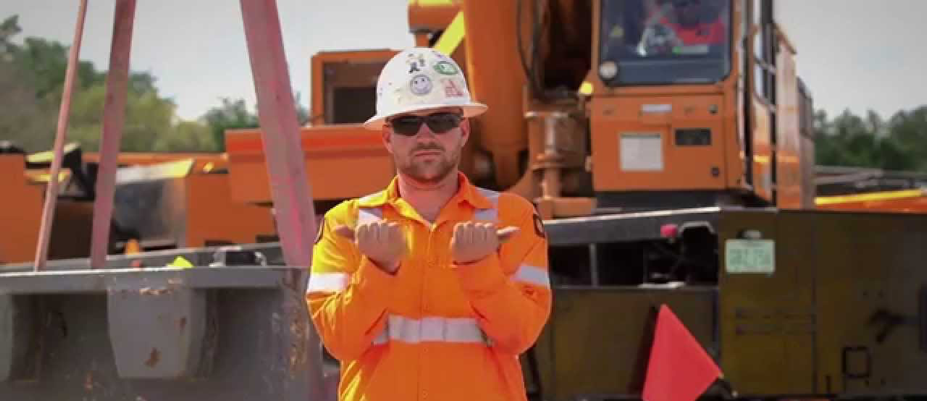
How to Prevent Communication Failures on a Construction Jobsite
How to Prevent Communication Failures on a Construction Jobsite
Communication starts with creating a quality and interactive culture within your construction company. Create an atmosphere where communication and engagement are encouraged amongst all employees. Many companies underestimate the vital importance of having an excellent system for communication, putting it off as less important than other aspects of a project. In reality, communication is one of the most if not the most important aspect of a project. Without good communication, productivity, money, and quality of work will be lost. This can leave you, your workers, and your customer disgruntled and frustrated, which is not something anyone wants. Thankfully, identifying a need for better communication is the first step in creating a plan for your next project.
Here are a few valuable tips you can use to prevent any communication failures in your next construction project.
Table of Contents
Set aside time for meetings
Make sharing information a priority! Set aside a small amount of time each day to meet with the members of your team. Although this might seem unnecessary, it will keep everyone up-to-date and on the same page. This meeting time can serve as a time for the workers to address any concerns they have and ask questions they might have about the project. Your workers will also appreciate you devoting time to communicate with them. Daily meetings keep your team members accountable and keep an open flow of communication among everyone on the team.

Be concise and stick to the facts
Not every piece of information is important, and it is up to you to decide what is. Focus on providing clear and concise information to get your point across. You want the members of your team to know exactly what your message is with as little words as possible. Focus in on what you want your team to know and then stick to the key facts. It’s also important to avoid using any jargon or language that people might not understand or misinterpret. This can lead to confusion and communication gaps, resulting in communication failure.
Use hand signals
Nonverbal communication can be an extremely useful tool to use in order to increase communication. Construction sites are often very loud causing it to be hard to hear certain instructions or warnings. Developing a few hand signals to use for warnings and commands can help you prevent any possible accidents in the field. These signals serve as a quick and easy way for team members to get a message across to the other members.

Actively listen
When you are meeting with your team members, remember that listening is different than actively listening. The whole point of a meeting is to communicate clearly, listen, and discuss. If you are sitting in a meeting, but your head is elsewhere, there is no point for a meeting in the first place. Take notes if you need to and once someone is done talking, then give feedback and ask questions. This creates an atmosphere of genuine respect and excellent communication. Everyone wants to feel like they are being heard, so it is imperative that communication is welcomed and encouraged.
Implement cloud-based software
The best and most comprehensive way to improve your communication strategy and avoid communication failure is cloud-based software. There is no better option in the field better than upgrading your technology and streamlining your communication. The cloud-based software keeps everyone interconnected and allows you communicate in real-time with your phone or tablet. This means no more waiting around for an email response or fax. Instant communication is right at your fingertips!
FAQs – How to Prevent Communication Failures on a Construction Jobsite
1. Why is communication so important on a construction jobsite? Communication is crucial on a construction jobsite because it ensures that all team members are on the same page, which ultimately impacts productivity, work quality, and the efficient use of resources. Failure in communication can lead to delays, costly mistakes, and dissatisfaction among workers and clients.
2. What are some practical tips for preventing communication failures in construction projects? Here are some valuable tips to prevent communication failures:
- Set aside time for meetings to keep the team informed and address concerns.
- Be concise and stick to the key facts to avoid confusion.
- Use hand signals as a nonverbal communication tool, especially in noisy environments.
- Actively listen during meetings to foster genuine respect and effective communication.
- Implement cloud-based software for real-time communication and streamlined operations.
3. Why is setting aside time for meetings important in preventing communication failures? Regular meetings provide a dedicated forum for team members to share information, discuss concerns, and ask questions. They help in keeping everyone up-to-date, accountable, and on the same page. Meeting time allows for open communication and builds a sense of teamwork and engagement.
4. How can being concise and sticking to the facts improve communication? Clear and concise communication is essential to convey messages effectively. By focusing on the key facts and avoiding unnecessary jargon or complex language, you ensure that your message is easily understood. This reduces the risk of misinterpretation and communication gaps, preventing failures in communication.
5. Why should construction teams use hand signals as a communication tool? Hand signals are particularly useful in noisy construction environments where verbal communication may be challenging. They serve as quick and clear ways to convey warnings, commands, or instructions to team members, reducing the risk of accidents and misunderstandings.
6. What is the difference between listening and actively listening during meetings? Actively listening involves giving your full attention during meetings. It means taking notes, providing feedback, and asking questions when necessary. Active listening creates an atmosphere of respect and encourages open communication. It ensures that team members feel heard and valued, which is crucial for effective communication.
7. How can cloud-based software help improve communication on a construction site? Cloud-based software offers instant and real-time communication capabilities, making it a comprehensive solution for enhancing communication. It keeps team members interconnected and allows communication via smartphones or tablets. This eliminates delays associated with traditional communication methods like email or fax, ensuring that information flows seamlessly and promptly.